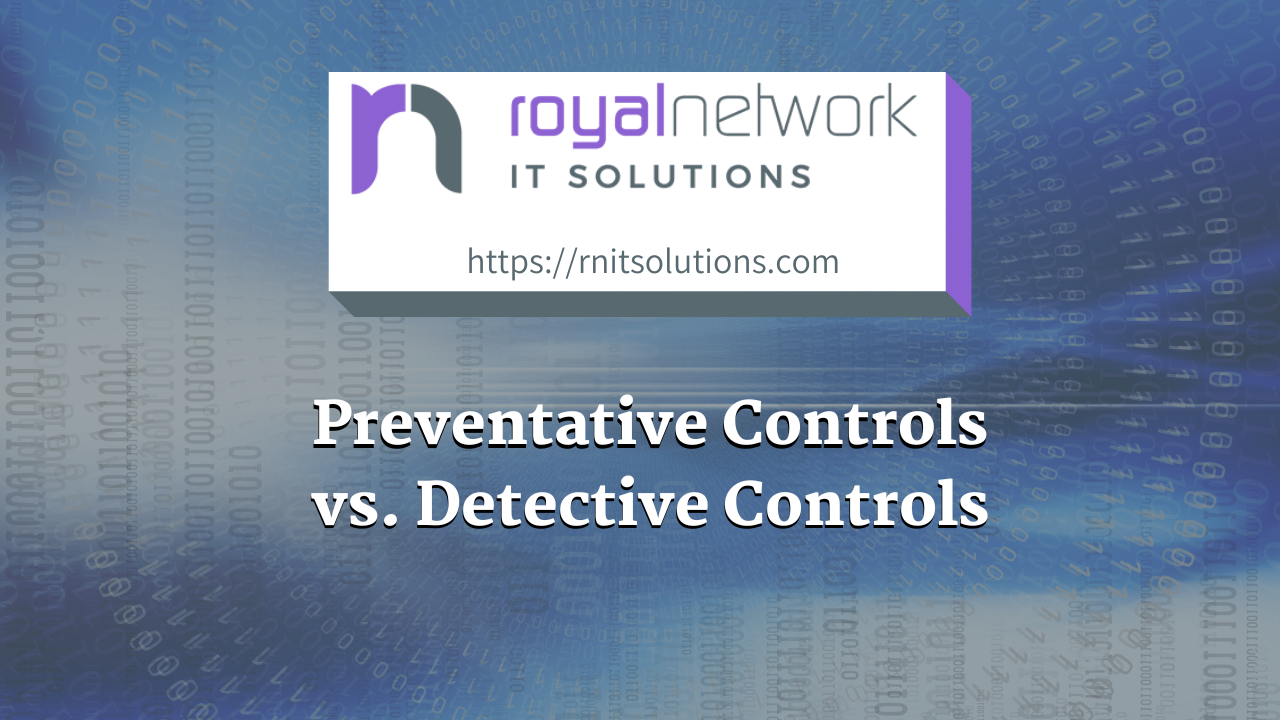When it comes to your IT strategy, internal controls are the key to assuring the success of your efficiency and operations, financial reporting, and compliance laws and regulations objectives.
The goal of these controls is to take action, including preventative measures, to ensure the right things happen and the wrong things do not.
However, not every error can be predicted seamlessly, which is why we suggest that organizations have both preventative and detective controls in place.
Differences between preventative and detective controls
Main function
While both controls are important to ensure that your organization’s objectives and goals will be met, the two serve very different functions.
Preventative controls are designed to stop and/or suppress errors and irregularities from occurring. They are always built into the internal control system and require a lot of upfront effort from your managed IT staff. Not only are these considered in the initial design, but also in the implementation stages.
On the other hand, detective controls are designed to identify errors and irregularities that have already happened. It is their responsibility to correct these errors with as much efficiency as possible.
Timing
As you know, the purpose of an IT strategy is to ensure errors are managed at every step and every part of the internal control process. We often mistake preventative as meaning “before,” whereas in this case, preventative measures mean acting both before and after an error occurs.
When working with technology, we can almost guarantee that some error you have not encountered before or did not predict will happen. When it does, organizations are especially thankful for putting more preventative measures in place. They allow themselves to prepare for more than just what could be immediately seen or prevented, and because of this, other unknowing risks are much more easily managed.
An example of detective controls can be seen as suppressing an already-occurred error or even preventing further risk or errors occurring after the first. Think of detective controls as a system of detectives that investigate errors and provide evidence as to why that error occurred. This information is just as helpful for network management and planning as the information that preventative controls provide.
Investment
Since preventative controls are a part of the beginning implementation process, they are well-thought-out and planned upfront. This means they do not require a large ongoing investment.
Detective controls, however, do require continuous monitoring, from managed IT support or others. These controls are not only detecting errors, but also correcting data mistakes, modifying controls, and recovering missing assets. All the above are crucial to your success, making the ongoing investment completely worth it.
You’ve heard the old saying “failing to plan is planning to fail.” Why take action after the issue, when you could instead take a proactive stance to prevent the issue before it occurs, and set preventative measures up to assure unpredicted errors are handled with ease?
With our managed IT services, we can guarantee a seamless and efficient internal control process that enables you to fight back against these errors and avoid disruptions and risks in your organization. We invite you to have a conversation with us about these practices online or by phone at 949-236-7700.

